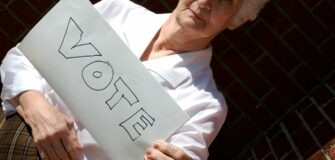Expanding DNA analysis beyond forensic roots
Share
While genetic testing often brings to mind sensationalised crime scene investigations, Australian company Identilab is pioneering broader horizons for DNA analysis.
Specialising in paternity, maternity and kinship testing, Identilab holds prestigious NATA accreditation – a distinction reserved for just 5 Australian labs meeting rigorous quality standards.
In an exclusive Q&A with Healthcare Channel, Identilab Forensic Scientist and Founder Kate Pippia reveals the intricate science and methodologies behind DNA testing, the challenges they face in maintaining precision, and the future of this cutting-edge field.
“For DNA results to be used legally, including Family Court matters or to be submitted to a government agency like Births, Deaths, and Marriages, NATA accreditation is essential. Our clients can be confident they are receiving accurate and reliable results because we strictly follow those testing requirements,” Kate said.
This accreditation enables Identilab to facilitate immigration and citizenship processes, supporting overseas clients seeking Australian visas or citizenship.
“We meet the requirements of the Department of Home Affairs for DNA testing and sample collection locally and abroad and have extensive experience in liaising with Australian Embassies, High Commissions, Consulates, and approved panel physicians for overseas clients,” she elaborated.
Maintaining the utmost accuracy in DNA testing, especially in legal cases, is a paramount challenge.
According to Kate, “For our legal and immigration cases, the paperwork and sample collection are completed and witnessed by third parties to confirm the identities of each participant.”
She further emphasises their commitment to quality by stating, “The testing is 100% accurate and performed by fully qualified scientists as required by NATA.”
Elucidating the science underlying genetic relationship analysis, Kate said, “With kinship testing, the percentage of the amount of DNA you share decreases with family members that are more extended, so this requires more interpretation. We always ask our clients for as much information about their family tree, so we can recommend which kinship test is best for their scenario.”
The company is keeping a keen eye on emerging technologies poised to propel DNA testing into new realms. “A technology increasingly evolving is next generation sequencing, also known as high-throughput sequencing. NGS allows researchers to rapidly sequence large amounts of DNA with unprecedented speed and cost-effectiveness,” she noted.
By upholding exacting standards while expanding possibilities, Identilab proves DNA testing has broken free of crime scene trappings. Their pioneering work across diverse applications is writing an inspiring new chapter in genetic analysis’ continually unfolding story.
Related: Dementia, tech boom and staff shortage: Aged care’s next big waves
Ritchelle is a Content Producer for Healthcare Channel, Australia’s premier resource of information for healthcare.






